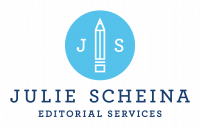Q: I’m working on a nonfiction manuscript. Do you have any recommended resources for nonfiction authors?
A: My primary area of expertise is fiction, so I turned to one of my editor friends, Heidi Fiedler, to help answer this question. Heidi is a writer and editor who has worked on more than 300 books, many of which are nonfiction, and I frequently refer nonfiction authors to her. Heidi shared the following advice:
“It’s easy to believe what you read when it makes sense or supports what you believe—but that doesn’t mean it’s true. Whether you’re writing a nonfiction bestseller or creative nonfiction for kids, it’s important to be accurate. I know my readers trust the information in the books I write, so I do my best to fact check while I’m researching and writing, and then again when I’m revising. Below are some easy tips for sorting out wacky websites from serious sources, so you can feel confident that what you’re writing is accurate, and your readers can trust you.
“When I’m fact checking online, I always try to find two reliable sources that confirm each fact. These are some of my favorite sources:
- Britannica
- National Geographic
- PBS
- NPR
- BBC
- Smithsonian
- Nautilus Magazine
- Live Science
- RadioLab
- Loh Down on Science
“National magazines, newspapers, and government websites are also strong sources. The Crash Course videos on YouTube are good for getting an overview on a complex topic. To make sure the content I’m creating is accurate, I think about the type of information I’m fact checking. If I’m citing specific quantities, dates, or names, I know there should be one verified answer. If I’m explaining a complex idea, then I focus on making sure I understand all different perspectives on the topic and present them in a way that helps the reader understand what points most experts agree on and where they disagree.
“When I find an unfamiliar source that looks promising, I check to see:
- Is the copyright date on the website recent?
- Do reliable sources link to this site?
- Are several sites using the same language and referencing a primary source I should use instead?
“For print materials, I look for sources that:
- Were written or reprinted after 2010
- Published by governments or scholarly journals
- Are published nationally and fact checked like trade books and weekly news magazines
“If something doesn’t feel quite right, I contact an expert with questions or do a little more digging. And if I’m still not sure, I say that when I’m writing. When it comes to fact checking, it’s better to be unsure and true than certain and wrong! And of course, you can always check in with your editor to brainstorm and problem solve.”
Thank you, Heidi! Please visit Heidi’s website to learn more about Heidi and her work, which includes teaching masterclasses and workshops, coaching writers, and offering manuscript critiques. If you are interested in taking one of Heidi’s masterclasses, she’s kindly offering a 15% discount to Your Editor Friend readers with the code JULIESCHEINA.
Your Editor Friend,
Julie
